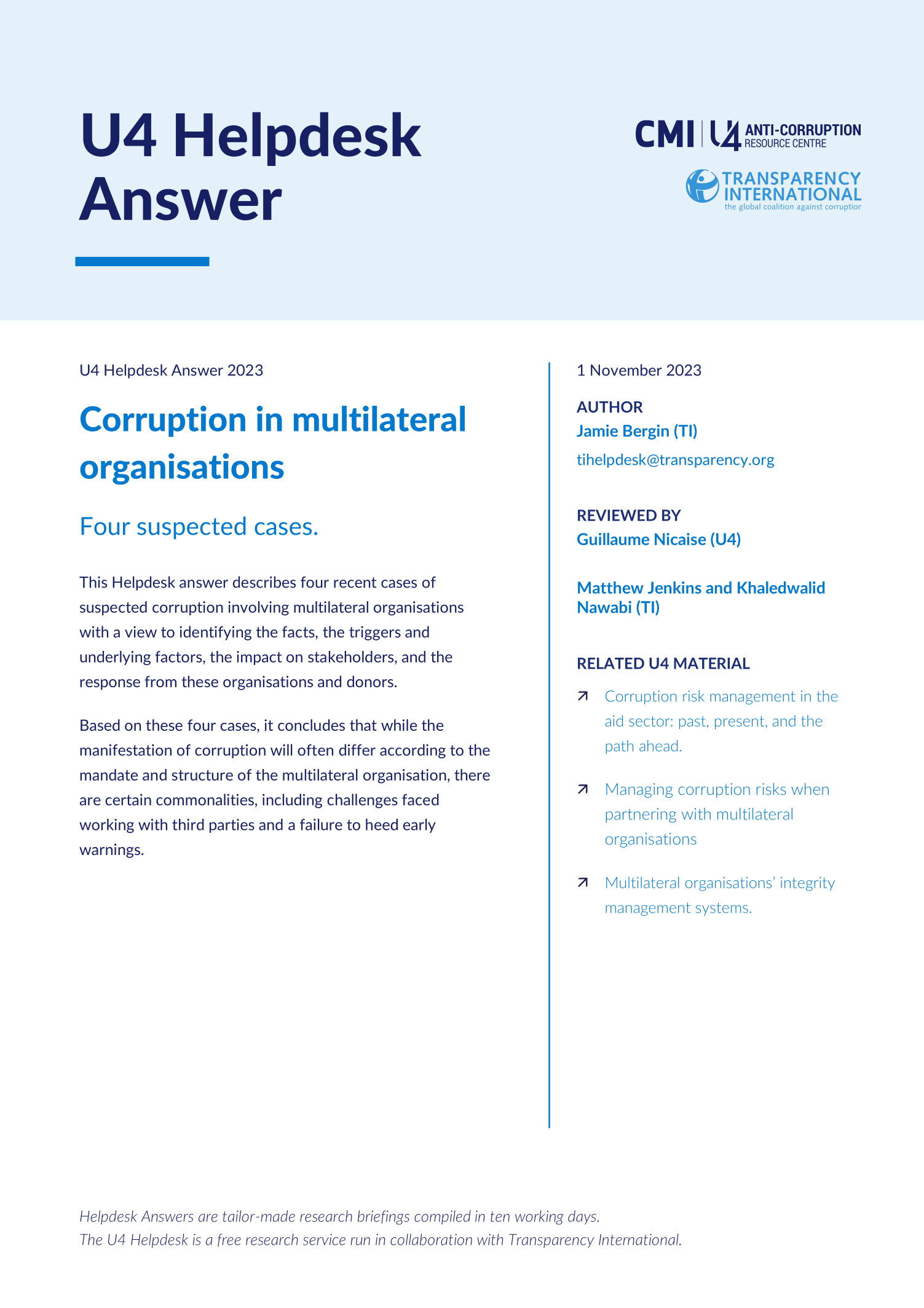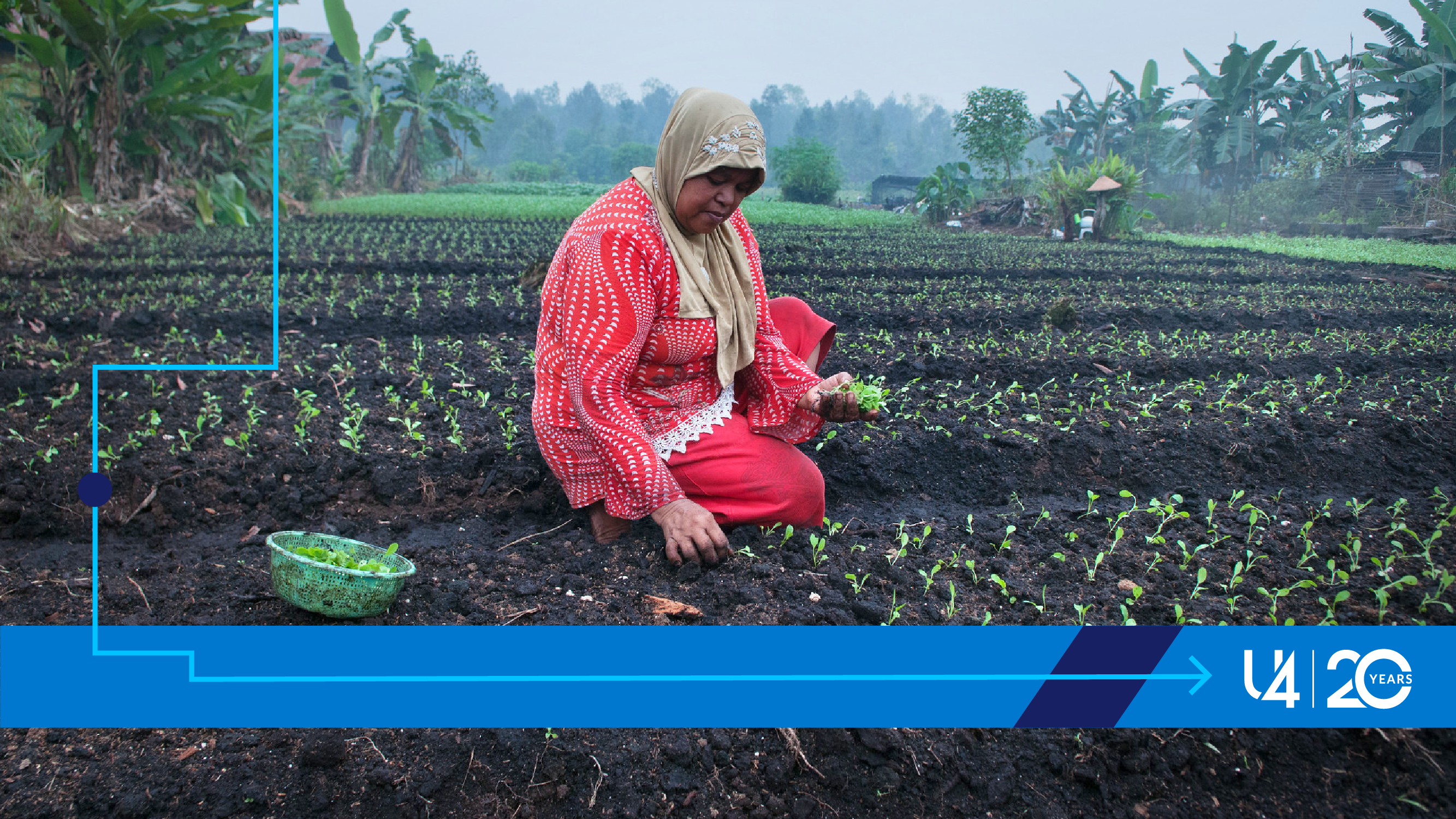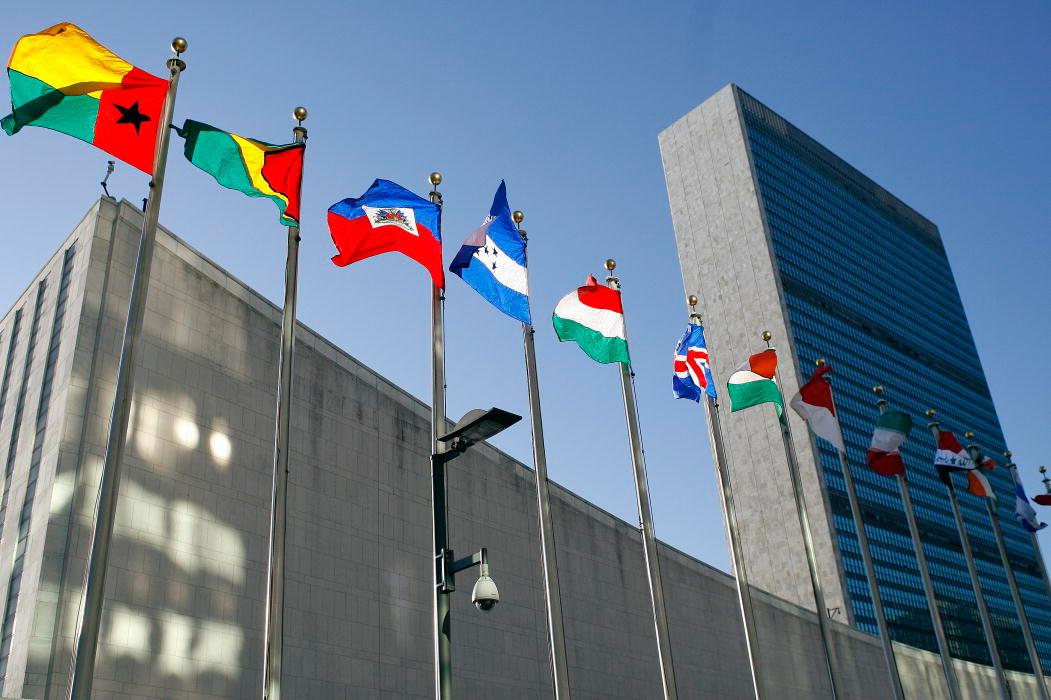Main points
- Most multilateral organisations have established integrity frameworks, anti-corruption policies, and oversight measures. Nonetheless, reports of corruption or misconduct at these organisations continue to emerge.
- Multilateral organisations are generally cautious about disclosing details about specific cases of corruption, and often what information is available in the public domain comes from the work of investigative journalists.
- A review of four suspected cases involving multilateral organisations reveals that a range of forms of corruption can affect their operations, including collusion, bribery and sextortion.
- Triggers and underlying factors can include failure to heed early warnings, risks of working with third parties and challenges in maintaining oversight.
- Corruption involving multilateral organisations can have severe impacts. Not only due to the high sums involved, but also because corruption undermines the intended outcomes of multilateral organisations’ interventions, and these failures can disproportionately impact poor and marginalised populations.
- Responses from donors and multilateral organisations themselves appear to vary depending on the magnitude of the case and the media coverage it receives.



